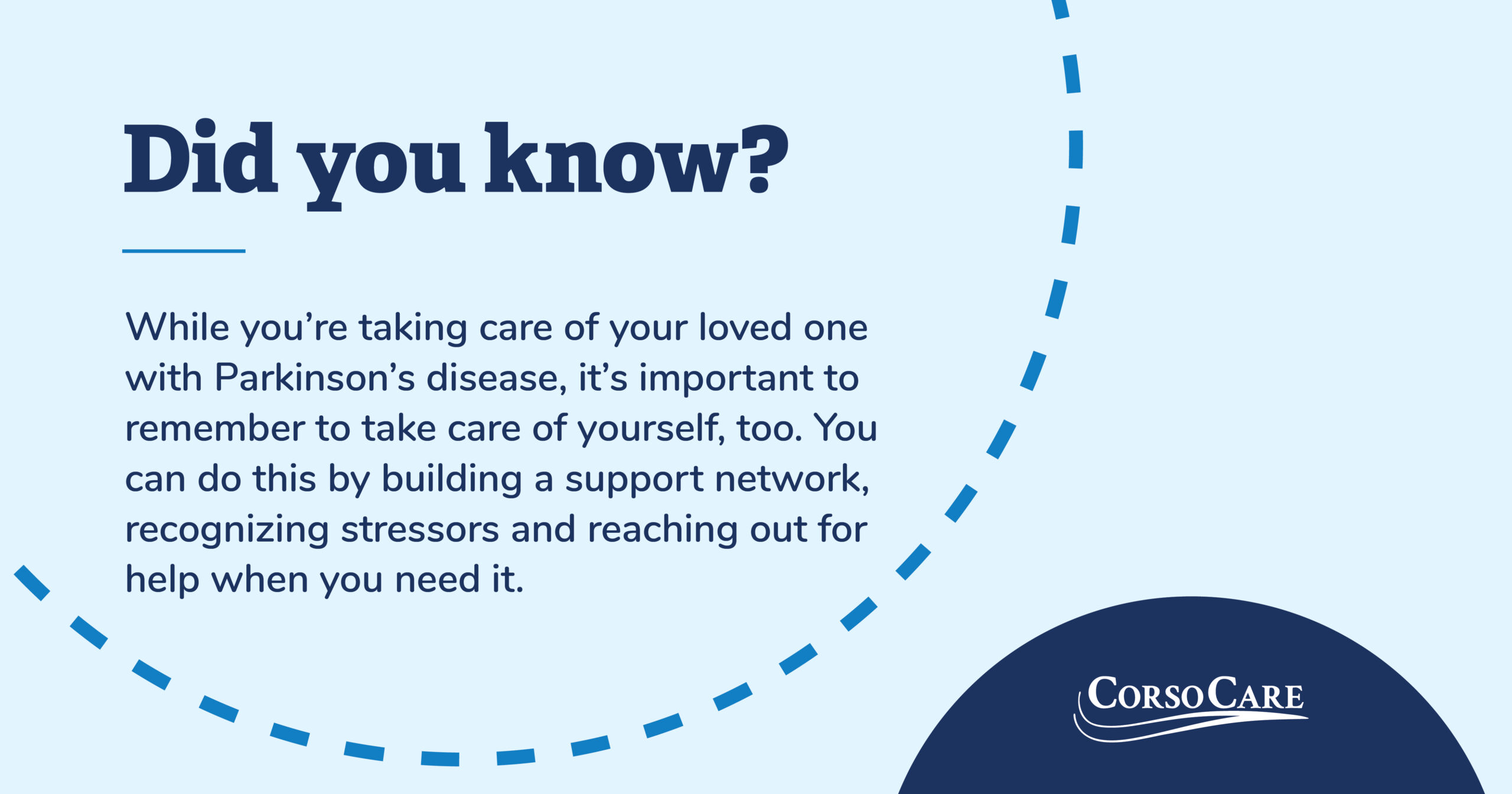A Caregiver’s Guide | Caring For Someone With Parkinson’s Disease
A Parkinson’s disease diagnosis can be life altering, and for the loved ones of someone who was recently diagnosed, it can come with its own sense of uncertainty. What does this mean for them? What does it mean for you? How will their life change? How will yours?
Learning to care for someone with Parkinson’s takes time, but you are not alone. Here’s a Parkinson’s disease caregiver’s guide with tips for caring for a Parkinson’s patient and resources to learn more about the disease.
Responsibilities Of A Caregiver
Caring for a loved one with Parkinson’s disease can be a challenging job, especially if it’s a job you’ve never had before.
Some people are born with caretaker instincts, while for others, it may not come as naturally. Give yourself time to adjust to your new role and the responsibilities that come with being a caregiver of someone with Parkinson’s disease.
Some of those responsibilities may include:
- Helping to maintain the quality of life for your loved one.
- Educating yourself on Parkinson’s disease and its symptoms, treatments and more.
- Managing doctors’ appointments, medication and treatments.
- Offering love and support to help your loved one adjust to their diagnosis.
Keep reading for tips that will help you manage these responsibilities and best help your loved one.
Get Educated On Parkinson’s Disease
The more you understand Parkinson’s disease, the better you will understand how symptoms, treatments, lifestyle changes and medications can affect your loved one.
Some leading researchers in Parkinson’s disease include the Parkinson’s Foundation, The Michael J. Fox Foundation For Parkinson’s Research and the American Parkinson’s Disease Association. Don’t forget that you can also lean on your loved one’s doctors for information and research on Parkinson’s disease.
Tip: Write down any questions you have for their doctor so you can easily reference them during your loved one’s appointment. Click here to download our list of frequently asked questions about Parkinson’s disease if you’re not sure where to start.
Take Care Of Yourself
Have you ever traveled on an airplane and heard the saying, “in the event of a crash, put your oxygen mask on first before helping others”? Being a caregiver of someone with Parkinson’s disease is similar.
You want what’s best for your loved one — of course. But if you aren’t first taking care of yourself, you won’t be able to take care of them either.

Did you know?
While you’re taking care of your loved one with Parkinson’s disease, it’s important to remember to take care of yourself, too. You can do this by building a support network, recognizing stressors and reaching out for help when you need it.
Make sure you’re taking time to relax. You can ask others around you for help or hire someone to assist with part-time or full-time care support.
Encourage Your Loved One To Participate
You can’t do everything all at once. Often times, someone who can share the responsibility with you is your loved one with Parkinson’s. Be sure to ask them their opinions and allow them to speak for themselves as much as possible.
It also helps to give them time to complete the daily activities that they can on their own, even if it may take longer. For example, if your loved one is able, allow them to put on their shirt and step in if they have difficulty doing the buttons.
Giving your loved one their independence whenever possible can help them stay active and keep their spirits up.
Create A Safe Home For Your Loved One
Parkinson’s disease often affects mobility and can cause an increased risk of falls. Making sure that your home is safe is another step that you can take to help your loved one.
Walk through your home and assess the space for any fall hazards for someone with Parkinson’s. Keep walkways clear, secure furniture to the wall and ask your loved one what you can do to help them move around your space.
Maintain A Good Relationship
It’s easy to fall into the role of “nurse” and let the role of “child,” “sibling” or “friend” fade to the background. This isn’t helpful for you and can make your loved one feel helpless.
Remember the relationship you had before your loved one was diagnosed with Parkinson’s disease. Though it may have changed, that relationship is still important.
Here are a few tips to keep your relationship with someone with Parkinson’s strong:
- Don’t stop spending time together. What did you like to do together before your loved one’s diagnosis? Make sure to do activities together outside of your daily caretaking.
- Allow your loved one to do as many tasks as they can. This will help them keep their independence and share the responsibility with you.
- Make sure you check in with your loved one often. Open conversations, though sometimes difficult, will help you both discuss how you’re feeling and what you need.
Ask For Help When You Need It
Though it may feel like it sometimes, you are not alone. There are plenty of resources for you to help both you and your loved one through the challenges of Parkinson’s disease.
Not sure where to start? Here are a few resources available to you:
- Caregiver education, support, and networking groups
- Online forums
- Financial, legal and insurance assistance programs
- Medication assistance program
- Government programs
- Aging resources
- End of life planning support
CorsoCare Is Here For You
For more information on Parkinson’s disease and how CorsoCare can support you and your loved one, call us at 248-438-8535.
